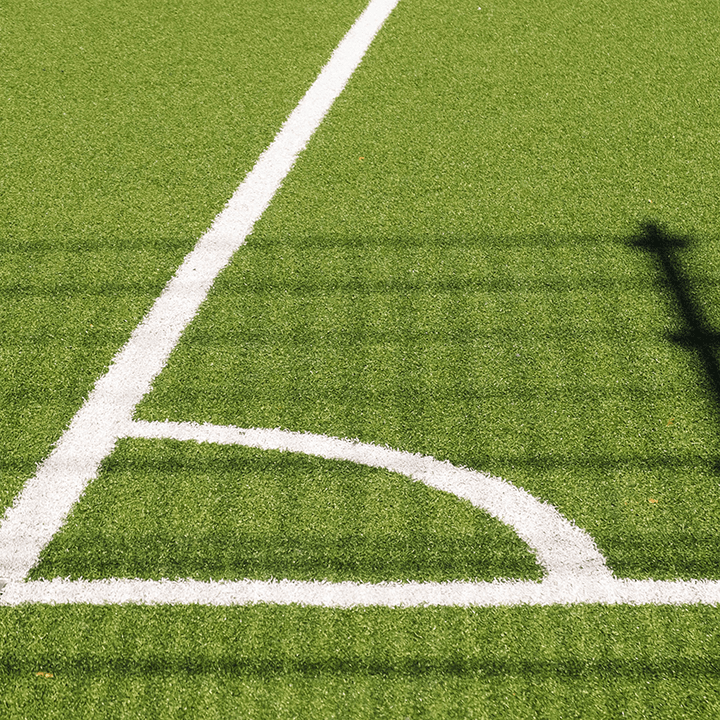Football pitch works: 8 risk areas to pay attention to
21st April 2023
As we approach the end of the football season many clubs will be arranging for upgrade or replacement works to their pitch over the summer break. Our Construction & Engineering team, together with our Sports Law colleagues, is experienced in drafting and negotiating contracts for football pitch works, and assisting parties to recover their losses when things go wrong.
No one wants to receive fines, incur the cost of expensive remedial works, see their players slipping around or their pitch quality being blasted on social media. In this article Construction & Engineering Partner Carly Thorpe discusses 8 common issues with football pitch works, to help clubs avoid the financial losses and negative publicity of a substandard pitch.

The contract
Make sure there’s a written contract signed by both parties. We see many clubs inadvertently agreeing to be bound by the contractor’s terms and conditions (which contain strict exclusions and caps on liability) because no formal written contract has been agreed. We also see contractors seeking to avoid liability by arguing that a particular requirement hasn’t been agreed, where it hasn’t been included in a signed written document.
The specification
The majority of the football pitch works disputes we deal with are caused or made more difficult by the fact that no clear specification has been agreed between the parties. A clear written document is required which confirms the standard that the pitch is required to perform at. General terms such as “a full returf” are not sufficient. Instead consider specific wording such as “being capable of withstanding 2 games per week” or referring to a national standard such as the applicable league requirements. The specification should also confirm the required materials mix for the pitch such as the fibresand mix, the maximum sand content in the upper root zone, and whether additional measures such as an irrigation system or undersoil heating are required. The expected lifecycle of the pitch should also be confirmed. For example, are the works intended to get the pitch just through to the next summer, or are they intended to be a longer term solution?
Design
We often see issues where the parties dispute who was responsible for designing the pitch. Contractors argue they just built what the club told them to, whereas the club says they expected the contractor to design the pitch so it met a particular standard. In a situation where a contractor doesn’t have design responsibility it can be very difficult to prove liability for defects and the contractor’s insurance is unlikely to cover the losses. We would recommend that the parties discuss design at the outset and make sure each party’s respective responsibilities are expressly set out in the contract.
Insurance
Any contractor who is carrying out design should be required to maintain professional indemnity insurance cover for a period of 6/12 years from practical completion of the football pitch works. We would recommend that clubs obtain current verification that this insurance cover is in place, and require that updated verification is provided every 12 months. Also consider who will be responsible for insuring the works themselves whilst they are ongoing. Will the existing insurance cover on the ground extend to this? Or is the contractor required to take this out? If so, again current verification of this insurance cover should be obtained.
Programme
A common issue is that football pitch works are delayed so there is insufficient grow in before the first game of the new season. This can lead to postponements (and additional costs) or danger to players. Parties should agree at the outset of the pitch works: when are the works required to start and finish? What grow in period is required? Which party is responsible for delays?
Supervision
It’s a good idea for a club to appoint an independent consultant to oversee the football pitch works, and sign them off as complete. This increases the likelihood of any issues with the pitch being spotted before the contractor receives its final payment and leaves the site. Any independent consultant should be appointed under a formal written contract which sets out: the number of visits required to site; Is the consultant required to supervise the works whilst they are being carried out or just sign them off at completion? Does the consultant have design responsibility? What testing is the consultant required to carry out before completion?
Maintenance
We often see contractors seeking to avoid liability by arguing that issues with pitch performance are due to poor maintenance. So it’s advisable that a club requires the contractor to specify in writing what maintenance is required to the new pitch. The club’s grounds team should also keep detailed records of the maintenance such as a daily site diary. One top tip is to use voice notes instead of written diaries if the grounds team struggles to find time to write things down.
Defects
If football pitch works do go wrong, contractors will often seek to reduce their liability by arguing that the remedial works implemented by the club are excessive or amount to betterment. To protect against this we would recommend: notifying the contractor of any issues discovered and asking the contractor to return to site and remedy the issues at their own costs; engaging an independent consultant to advise on an appropriate remedial scheme; giving the contractor an opportunity to comment on the proposed remedial scheme before it’s implemented; taking photographs and videos of the pitch before, during and after any remedial works; taking soil samples before you start any remedial works and keeping these preserved in case they need to be tested at a later date; and keeping records of the costs in fact incurred such as invoices and timesheets.
Football pitch works: How we can help
If you have any queries about any of the points covered or would like to know more about our experience in respect of football pitch works please contact Carly Thorpe. If you have any other sports-related queries, please contact a member of our Sports Law team.











